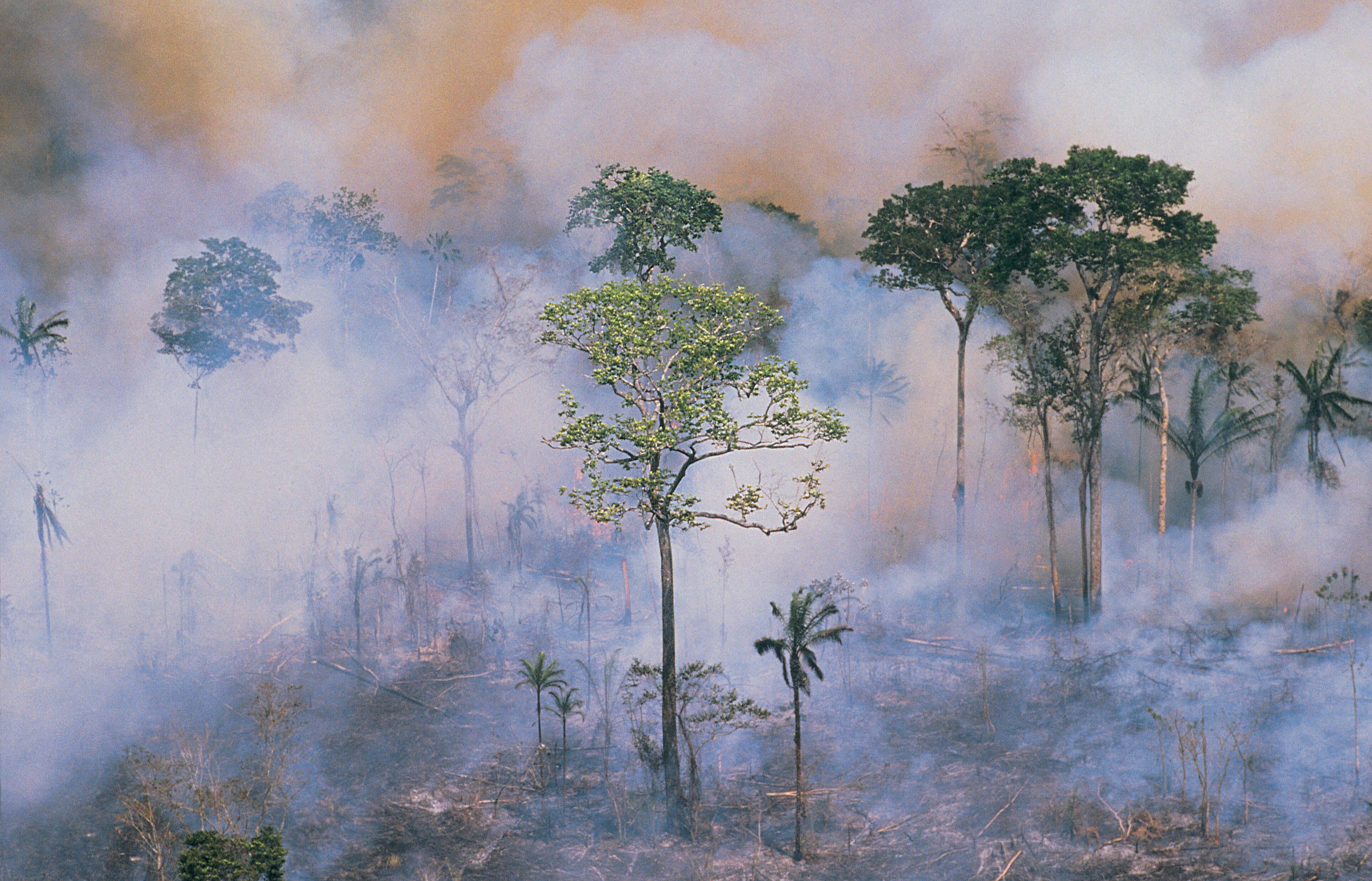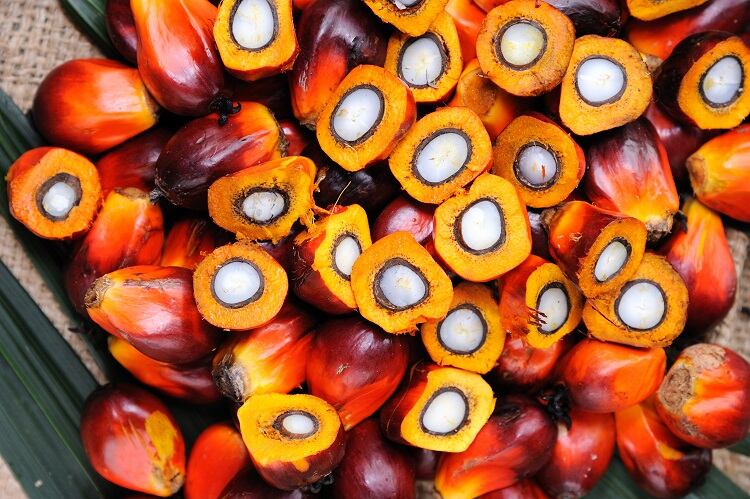A report from Greenpeace accused JBS of “still slaughtering the Amazon” despite its past commitments to control indirect suppliers.
The group claimed the world’s largest meat-packing company has been “exposed time and time again for its part in deforesting the Amazon”.
Anna Jones, head of forests, Greenpeace UK, said: “JBS continues to have a problem… It does not have full transparency.”
Greenpeace said a new report by the Bureau of Investigative Journalism also exposed evidence of JBS’s direct involvement in moving cattle from deforested land to a ‘clean’ ranch, from which they could be officially bought by the company.
“It is still knowingly involved in deforestation,” said Jones. “JBS is not just turning a blind eye to its suppliers’ violations but has been directly implicated in transporting deforestation-linked cattle to one of its own direct suppliers.”
In response to Greenpeace’s claims that the company is indirectly sourcing cattle from farms in the Amazon involved in deforestation, a spokesperson said: “All JBS subsidiary companies adhere to strict responsible procurement policies throughout their supply chains and share our dedication to eliminating deforestation for good.
“We have been at the forefront of the industry in taking steps to improve supply chain traceability in Brazil. We are working closely with national and local government departments to develop solutions and system improvements around supply chain traceability and best agricultural practice to eradicate deforestation.
“JBS will continue to evolve continuously in new initiatives and plans in the coming months to promote significant changes.”
JBS’s monitoring system, which it claimed is considered “one of the best and most sophisticated in the world”, assesses more than 50,000 potential livestock supplying farms every day covering more than 450,000 km² (111 million acres) – an area larger than Germany.
However, the spokesperson added there is currently no publicly available official information to enable monitoring of indirect suppliers.
“We are nevertheless committed to tackling this issue and are in active discussion with stakeholders including the Federal Government of Brazil and other leaders across the industry to reach a practical solution.”
The company said that to date, it has blocked more than 9,000 cattle supplying farms due to noncompliance with its sustainability criteria. “If farms are deemed non-compliant with our sustainable sourcing policies for any reason, they are blocked from our supply chain.”
Concerning the allegations of cattle laundering, JBS said the BIJ report had used an individual case of JBS Transport cattle movement between farms to support a “spurious allegation of complicity in cattle laundering” and to conflate it with “the system level-issue of indirect supply traceability in Brazil”.
“Cattle laundering is when a livestock producer whose farm has an IBAMA environmental embargo for illegal deforestation uses a third party to supply their cattle to processing plants. To be clear, the cattle transport movement referred to in the BIJ report was not bound for a processing plant. Nor was the farm of origin subject to an IBAMA embargo.”
IBAMA, or the Brazilian Institute of the Environment and Renewable Natural Resources, is the Brazilian Ministry of the Environment's administrative arm that supports anti-deforestation of the Amazon.
The spokesperson added: “Had we not been satisfied that this farm was free of embargo, the entire transaction would not have taken place.
“For the record, JBS is not involved in, nor does it condone cattle laundering. In fact, it has been at the forefront of initiatives to stamp out this practice, working with the Federal Prosecutor’s Office and the Brazilian NGO Imaflora to introduce enhanced protocols enforceable from 1 July 2020.”
JBS pointed to various initiatives it has pursued to mitigate against issues such as cattle being traded between farms. These include the ‘theoretical index’, used to calculate if a livestock supplying farm has productivity above the maximum quantity established of 3 head of cattle per hectare per year. If a farm exceeds this, then it must be checked to verify if it has a high productivity production system such as a feedlot, semi-feedlot or food supplementation capabilities which could justify the number reached. Otherwise, it will be classified as suspected of cattle laundering and, in this case, JBS and other processors must cease all negotiations with the supplier.
In addition, processors must follow new rules for monitoring suppliers that require the use of geo-monitoring tools to analyse the areas embargoed by IBAMA due to illegal deforestation. Based on geospatial analysis, if the property overlaps with embargoed areas it must be blocked and no cattle purchases made.
JBS said this approach is more robust than the existing process of cross-referencing a property’s data against IBAMA’s list of embargoed areas
Often, the IBAMA list does not include the data of all farm owners, which can make it difficult to monitor supplying farms, as it allows those who were not listed as an owner of an embargoed farm to sell cattle to processors from the same farm.
“We are proud of the part we have played in the development of the theoretical index and its implementation is expected to make a significant impact in the reduction of cattle laundering,” added JBS. “Since its implementation on 1st July 2020 we have already been able to identify cases which are under investigation.”
Tesco calls for deforestation-free food
The Greenpeace campaign called on the UK’s largest supermarket Tesco to de-list two suppliers owned by JBS, Moy Park and Tulip. In response, Tesco said that while it has blocked Brazilian meat sales since 2018, it will not de-list two JBS-owned meat suppliers.
In a statement it said: “Businesses need to be part of the coalition to bring about change. Penalising suppliers who are playing their part and stand ready to do more cannot be in the interests of this agenda. Moy Park and Tulip also supply Aldi, Co-op, Lidl, Sainsbury’s and Waitrose. Blacklisting them could lead to thousands of job losses, impact British farmers and ultimately compromise our ability to offer fresh British meat and chicken to our customers.”
However, it did call on the UK government to order food companies to ensure all food sold in the UK is deforestation-free
Dave Lewis, Group CEO of Tesco, said: “Right now 74% of shoppers don’t want supermarkets to remove meat but we recognise the whole country needs to reduce meat and dairy consumption. We will continue to lead with suppliers and through innovation, education and new choices. Our plant-based protein lines increased by 46% since last year. Already, 10% of Tesco’s chilled ready meals, milk, ice cream and frozen protein ranges are vegan. We are making tangible progress but we can’t solve this on our own. Government needs to act now and on the whole food system, taking into account economic recovery, health, environment and crucially, affordability."





